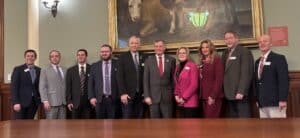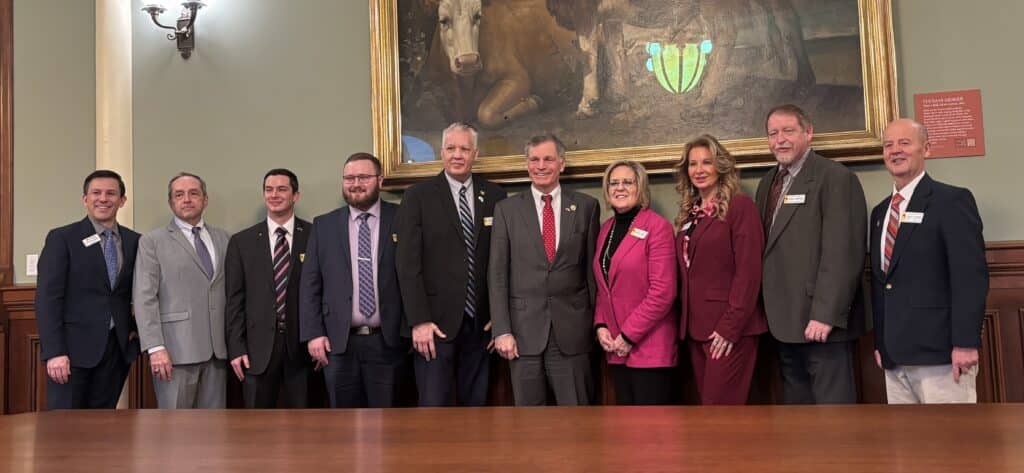Petroleum Association of Wyoming Applauds Passage of SF 20, a Novel Solution to Federal Overreach
Bonding Bill Allows Industry to Meet Federal Obligations Without Driving Small Operators Out of Business
Casper, Wyo. – The Petroleum Association of Wyoming (PAW) applauds the Wyoming Legislature and Governor Mark Gordon for the passage and signing of Senate File 20 – Oil and gas bonding-options and bonding pools, a groundbreaking, first-in-the-nation approach that ensures Wyoming’s small oil and natural gas operators can continue to responsibly produce energy despite burdensome federal regulations.
Senate File 20 was developed in response to the Biden Administration’s rule that increased bonding amounts in Wyoming by an astonishing 1,400%—a mandate that small, independent producers simply cannot afford. These small operators make up 85% of Wyoming’s oil and gas industry, many of them family-run businesses that have contributed to the state’s energy production for generations. Without a viable alternative, the federal rule could have forced many of them out of business, shutting down wells that provide jobs, tax revenue, and reliable energy for Wyoming.
“This bill is a Wyoming solution to a Washington problem,” said PAW President Pete Obermueller. “By creating a bonding pool funded by industry-paid fees and taxes, we’re ensuring that Wyoming’s small producers can meet their bonding requirements without being forced to shut down. This keeps wells operating, revenues flowing, and jobs in our communities—all while maintaining our strong commitment to environmental responsibility.”
“This is the first system like this anywhere in the nation, anywhere in the world,” said PAW Board Member Tom Van Kleef. “So I’d like to thank everyone who contributed to this effort – including the task force, the joint minerals committee members and the members of the current Senate and House who voted this bill through.”
The new bonding pool system provides a cost-effective and responsible alternative to the federal mandate, ensuring that operators can meet their obligations while continuing to produce oil and natural gas for Wyoming. By utilizing industry contributions, the bill creates a self-sustaining safety net that protects the industry and the state’s economy, all without taxpayer subsidies.
PAW extends its gratitude to Governor Gordon, the Joint Minerals Committee, and the Wyoming Legislature for their leadership and swift action to protect Wyoming’s energy industry from the devastating impacts of federal overreach. With the passage of Senate File 20, Wyoming once again proves that it is a national leader in pro-energy, pro-business policy solutions that balance economic growth with environmental responsibility.

(L to R): PAW President Pete Obermueller, PAW Board Member Tom Van Kleef, Rep. Dalton Banks, Rep. J.T. Larson, Rep. Christopher Knapp, Governor Mark Gordon, Rep. Martha Lawley, Rep. Nina Webber, Rep. Kevin Campbell, and Rep. Scott Heiner pose for a picture following the signing of SF 20 – Oil and gas bonding-options and bonding pools.
About PAW: Representing Wyoming’s primary economic engine, the Petroleum Association of Wyoming, is the voice of the oil and gas industry. Our members produce 90% of Wyoming’s oil and gas, generating over $8 billion in economic activity and employing more than 19,000 of Wyoming’s hard-working men and women. PAW strives to foster mutually beneficial relationships with Wyoming’s landowners, businesses, and communities while promoting the sustainable production of Wyoming’s abundant resources.
The Petroleum Association of Wyoming provides a forum for education, interaction, and unified action for members, policymakers, and the public.

